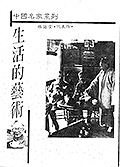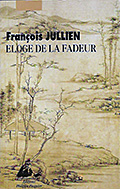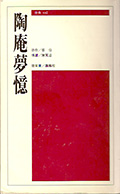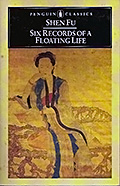Publications and reproductions
This brief list is intended for general readers seeking an introduction to literati art, criticism and views on living. For the most part, these books are written with charm and passion, demonstrating literati taste as well as describing it.
There is also a discussion of reproductions, focusing on materials that provide as nearly as possible a 'facsimile' experience of painting and calligraphy.
1. Literati taste – sensibility
These books present an overview from cultural and philosophical perspectives.
- LIN Yutang 林語堂 (1895-1976)
The Importance of Living (生活的藝術)
Reynal & Hitchcock, Inc., 1937
While in self-imposed exile in America, Lin turned from the turmoil of contemporary politics and war, compiling an idiosyncratic anthology of Chinese Classical writings on taste and the pleasure and the values of a well-lived life. Among the highlights are selections that match everyday physical pleasures – flowers and tea – with emotion and events. There are also passages about finding the right sort of partners for one's amusements (which might equally apply to looking at paintings!) And finally, there is the inclusion of JIN Shengtan's 金聖歎 (1608-1661) '33 Moments of Happiness' (不亦快哉三十三則), a subtle and ironic listing of occasions that provide satisfaction.
| |  |
| | | |
- François JULLIEN (b. 1951)
In Praise of Blandness: Proceeding from Chinese Thought and Aesthetics
(originally in French as Eloge de la fadeur, 1991)
Zone Books
"The quality of blandness: no sooner do you identify it than it begins to appear at every turn. Blandness, by definition, pays little heed to the borders our various disciplines like to draw. As the embodiment of neutrality, the bland lies at the point of origin of all things possible and so links them." A wide-ranging essay on this aspect of Chinese aesthetics and views on action. This may be complemented by reading Jullien's discussion of the Chinese concept of shi (勢) -'propensity' or 'disposition' - as a notion that links aesthetics with a wider discussion of transformation and the evolution of situations: The Propensity of Things: Toward a History of Efficacy in China (originally in French as La propension des choses, 1992.) Zone Books. Jullien is a professor at l'Université Paris VII, and director of l'Institut de la pensée contemporaine.
| |  |
2. Writings of the Ming and Qing Periods
Limpid and charming writers who linked personal experience, aesthetic and ethical motives, and natural and cultural worlds. The following have been among the most widely read.
- LI Yu 李漁, 字笠鴻 (1611 - 1679)
Some Notes on Leisure Time (閒情偶寄, 1671)
Errors Caused by the Kite (風箏誤)
Twelve Towers. (十二樓)
In his time, Li was widely read and appreciated for his daringly innovative subject matter and rich detail. In Some Notes on Leisure Time (閒情偶寄, 1671) he provides an imaginative compendium of worldly pleasures and the conceits of literati life. Li was also an actor, producer, director and playwright, who traveled with his own troupe. His play Errors Caused by the Kite (風箏誤) remains a favourite of Kun opera. He is also the presumed author of The Carnal Prayer Mat (肉蒲團, 1657), a well-crafted comedy and a classic of Chinese erotic literature.
| |  |
| | | |
- ZHANG Dai 張岱 (1597 - 1689)
Reminiscences in Dreams of Tao An (陶庵夢憶, 1665)
Search The West Lake in Dreams (西湖夢尋, 1671)
Zhang's works are intense and carefully detailed reminiscences of the life of the cultivated elite in the times just prior to the Manchu conquest in 1644. His descriptions also show corners of darkness in the obsessions and futilities of too great an attention to aesthetic and hedonistic pursuits. Zhang Dai’s life and motives are treated with depth and sympathy by Jonathan D. SPENCE in Return to Dragon Mountain: Memories of a Late Ming Man (Viking, 2007).
| |  |
| | | |
- SHEN Fu 沈復 (1763-ca. 1808)
Six Records of a Floating Life (浮生六記)
An autobiography of a not-too-successful scholar, a tender recollection of a husband's affection for his wife, and a handbook for realizing literati taste on modest means. It is particularly interesting for detailed descriptions of daily life, ranging from interior design to potted plants. It is also notable for depictions of family disputes and stress occasioned by money, expectations of respectful social behaviour, and sexual relations.
| |  |




